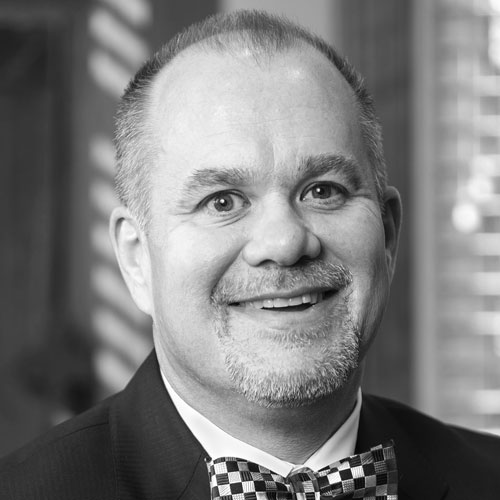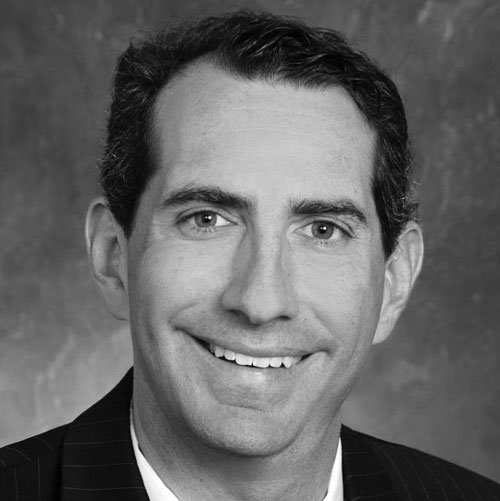Health, education, and law are three concentric circles that overlap to form a space that is fast-paced and often challenging. But at Thomas Jefferson University (TJU), Cristina Cavalieri commands that space with energy and confidence. While earning a degree in nursing, Cavalieri did some consulting for attorneys who encouraged her to study law. She took their advice and moved to Philadelphia where she worked to put herself through law school.
With a law degree in hand, Cavalieri hung up her scrubs and spent the next two decades in private practice before going in-house in 2005. Cavalieri’s personal concentric circles of education, experience, and business acumen converged seamlessly in the position she has held since, general counsel at Thomas Jefferson University.
Tell me about your responsibilities at TJU.
Cristina Cavalieri: Thomas Jefferson University is a health-sciences university that offers graduate and undergraduate degrees in health-sciences fields of medicine, pharmacy, nursing, and health research. It’s the parent organization of a medical college and an academic medical center, Thomas Jefferson University Hospital. I am responsible for all legal services, compliance, risk, and internal audit for the university and its affiliates. Seven attorneys report to me, and I represent the university—all of the students, faculty, and clinical physicians (around 670 doctors). Mainly, I am the legal adviser to the trustees, president, and other senior executives.
How did you end up at TJU?
Cavalieri: My background and areas of specialty are structured finance, mergers and acquisition joint ventures, strategic planning, executive compensation, and board governance and fiduciary duties. I was in private practice for twenty-three years, and my specialty was health-care law. This opportunity opened up back in 2005, and it’s a great university, so it’s a great opportunity. In-house general counsel positions are probably the best ones in the world.
Why is that?
Cavalieri: A general counsel gets to use legal acumen in a way that’s very strategic and proactive. Being in-house, you’re involved at the inception of ideas and strategic planning, so you get to shape those in order to enable the client to achieve its business objective, while at the same time being mindful of the legal construct and issues that could prevent them.
As an employee of a health-sciences university, what is your perspective on the health-care industry at the moment?
Cavalieri: The health-care business is not economically sustainable, given the rising cost of health care in this country. Our job at Thomas Jefferson University is to educate students and transform the delivery of health care into one that is focused on value provided to the patient and their families—not on how many visits a patient receives, or how many procedures or surgeries they have. Today, health care is reimbursed based on the amount of tests and procedures a patient receives, but not all of that brings optimal value to a patient. So what we’re looking at now is, how do you reinvent the delivery of health care and health-sciences education to be able to have providers give the most effective and efficient care in the right setting?
What do you mean by the “right setting”?
Cavalieri: When a patient receives care in a hospital, because of the large infrastructure a hospital requires, care is always more expensive. But not all care requires that level of intensity. So the best setting is the most
responsive to their medical and clinical needs, which may or may not be inpatient care.
So one of the important deliverables of the university is teaching students how to identity the best setting.
Cavalieri: Yes. That is critically important. Because the government and other third-party payers function by deciding how much is reimbursed for a visit, they’re going to be looking at the patient’s outcome. But the question should be: was the patient helped?
How do you hope that TJU students will affect the health-sciences industry?
Cavalieri: We train them to be future thought leaders in the health-care delivery and scientific research fields. They are constantly thinking, reevaluating, and looking for better ways to accomplish what’s needed for society—to not accept the status quo. The training they receive is essentially integrated with other health-sciences disciplines, so it’s a team approach to health care. The nursing, pharmaceutical, and physical therapy students all take classes together and become members of a team in the clinical setting. This way, they all understand each other’s fields.
It sounds like that kind of cohesive team must deliver the most value for the patient. How does your role influence that process?
Cavalieri: My role is in acting as an adviser and sounding board, helping to frame questions and provide guidance along the decision-making process. It can be challenging.
Are you facing any challenges in particular right now?
Cavalieri: It’s a highly regulated environment, which at times can be counterproductive. Another challenge is the difficult malpractice environment we face in Philadelphia. It’s better than it used to be, but in general, the public assumes that if there’s a bad result it must be due to negligence, other than an occurrence that could arise if you’re treating a critically ill patient, or a patient who has a multitude of disorders. It’s also a financially challenging environment, and overall operating budgets are small. The amount of money that we get reimbursed from the government and other commercial third-party payers, in many instances, doesn’t cover the cost of care.
What kind of changes are you advocating for in your industry?
Cavalieri: The general counsel should not only advise on legal issues, but on all issues that could implicate legal issues. Being a GC is more than just being a legal expert in a specific area. It’s having a depth and breadth of many areas, because what you’re called upon to do is help others make decisions very quickly. That requires confidence, sound experience, and judgment, which is obtained through having wide exposure to a lot of different areas.
Which is why your diverse education and background are very valuable. Do you feel like most of your time is spent on medically related legal issues?
Cavalieri: No, most of my time is managing and working with my colleagues and helping them provide advice, and giving counsel and advice to the board, the chairman of the board, the president, and the senior officers. It’s a great job. The best part is that every day is something different, but I’m part of a team, and I get to make a contribution every day.

